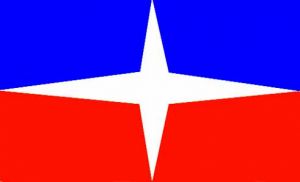Language/Interlingua-international-auxiliary-language-association/Vocabulary/Education
Hi Interlingua (International Auxiliary Language Association) learners! 😊
In this lesson, we will learn about education-related vocabulary in Interlingua (International Auxiliary Language Association). Education is a fundamental part of our personal and social growth, and knowing how to talk about it in a foreign language is essential. So let's get started! Don't forget to use the Polyglot Club website to find native speakers and practice your Interlingua (International Auxiliary Language Association) skills. You can also visit the Language Interlingua (International Auxiliary Language Association) section in the Polyglot Club forums to ask any questions you may have.
Basic Education[edit | edit source]
Education levels[edit | edit source]
In Interlingua (International Auxiliary Language Association), we can talk about different levels of education:
| Interlingua (International Auxiliary Language Association) | Pronunciation | English |
|---|---|---|
| educatión fundamental | /edu.ka.'tjon fun.da.men.'tal/ | basic education |
| educatión secundari | /edu.ka.'tjon se.kun.da.'ri/ | secondary education |
| educatión superior | /edu.ka.'tjon su.'pe.ri.or/ | higher education |
School subjects[edit | edit source]
We also need to learn school subjects to talk about education accurately. Here are some of the most common subjects we study:
| Interlingua (International Auxiliary Language Association) | Pronunciation | English |
|---|---|---|
| mente natural | /men.'te na.tu.'ral/ | natural sciences |
| historia | /is.'to.ri.a/ | history |
| matemáticas | /ma.te.'ma.ti.kas/ | mathematics |
| literatura | /li.te.'ra.tu.ra/ | literature |
| arte | /'ar.te/ | art |
| lengua nativo | /'len.gwa na.'ti.vo/ | native language |
Dialogue[edit | edit source]
- Person 1: ¿Esse curso es de mente natural? (Is this course about natural sciences?)
- Person 2: ¡Si, vamos a estudiar la biología, la física y la química! (Yes, we're going to study biology, physics, and chemistry!)
- Person 1: Me gustan mucho las matemáticas. (I really like math.)
- Person 2: A mi también. (Me too.)
Higher Education[edit | edit source]
Academic degrees[edit | edit source]
Acquiring an academic degree is an important achievement in higher education. In Interlingua (International Auxiliary Language Association), we use the following terms to talk about academic degrees:
| Interlingua (International Auxiliary Language Association) | Pronunciation | English |
|---|---|---|
| bacharel | /ba.ke.'rel/ | bachelor |
| maestro | /ma.'es.tro/ | master |
| doctoral | /do.'kto.ral/ | doctoral |
Dialogue[edit | edit source]
- Person 1: Mi amica está estudiando un maestrado en derecho en la universidad. (My friend is studying for a Master's degree in law at the university.)
- Person 2: ¡Impressionante! (Impressive!)
- Person 1: ¿Y tú? ¿Tienes un bacharel en algo? (And you? do you have a bachelor's degree in something?)
- Person 2: Si, tengo un bacharel en biología. (Yes, I have a bachelor's degree in biology.)
Learning Techniques[edit | edit source]
Learning techniques can be different from person to person. Some people learn better by listening, while others may need visual aids. Here are some techniques we use to learn:
| Interlingua (International Auxiliary Language Association) | Pronunciation | English |
|---|---|---|
| leger | /le.'ger/ | read |
| ascultar | /a.'skul.tar/ | listen |
| vider | /'vi.der/ | watch |
| scriber | /'skri.ber/ | write |
| parlar | /'par.lar/ | speak |
Dialogue[edit | edit source]
- Person 1: Me gusta ver películas para aprender Inglés. (I like to watch movies to learn English.)
- Person 2: Si, yo también aprendí mucho eso. (Yes, I also learned a lot from that.)
- Person 1: ¿Y tú como aprendes nuevos vocabularios? (And how do you learn new vocabularies?)
- Person 2: Leo mucho. Es como crear imágenes mentales en mi cabeza. (I read a lot. It's like creating mental images in my head.)
School Supplies[edit | edit source]
Among the essential things we need for school, school supplies are a must-have. Here are the most common school supplies we use in classrooms:
| Interlingua (International Auxiliary Language Association) | Pronunciation | English |
|---|---|---|
| folio | /'fo.li.o/ | paper |
| lapis | /'la.pis/ | pencil |
| Penna | /'pen.na/ | pen |
| teseras | /te.'ze.ras/ | erasers |
Dialogue[edit | edit source]
- Person 1: No encuentro ningún lápiz en mi bolsa. (I can't find any pencils in my bag.)
- Person 2: Toma uno de los míos. (Take one of mine.)
- Person 1: Gracias, pero ¿tienes una goma de borrar? (Thanks, but do you have an eraser?)
- Person 2: ¡Claro que si! (Sure I do!)
Conclusion[edit | edit source]
We hope that you enjoyed learning about the education-related vocabulary in Interlingua (International Auxiliary Language Association). Remember to practice what you learned and don't forget to use the Polyglot Club website to find native speakers and improve your skills. Visit the Language Interlingua (International Auxiliary Language Association) section, ask questions and participate in discussions. ¡Hasta la vista!
➡ If you have any questions, please ask them in the comments section below.
➡ Feel free to edit this wiki page if you think it can be improved. 😎
Sources[edit | edit source]
Well done on mastering this lesson! Don't miss these related pages to expand your knowledge: Time & Geography.
Other Lessons[edit | edit source]
- Months of the Year
- Animal
- People in Interlingua
- Basic Phrases in Interlingua
- Drinks
- Animals
- Time
- Count to 10
- Numbers
Template:Interlingua-international-auxiliary-language-association-Page-Bottom

